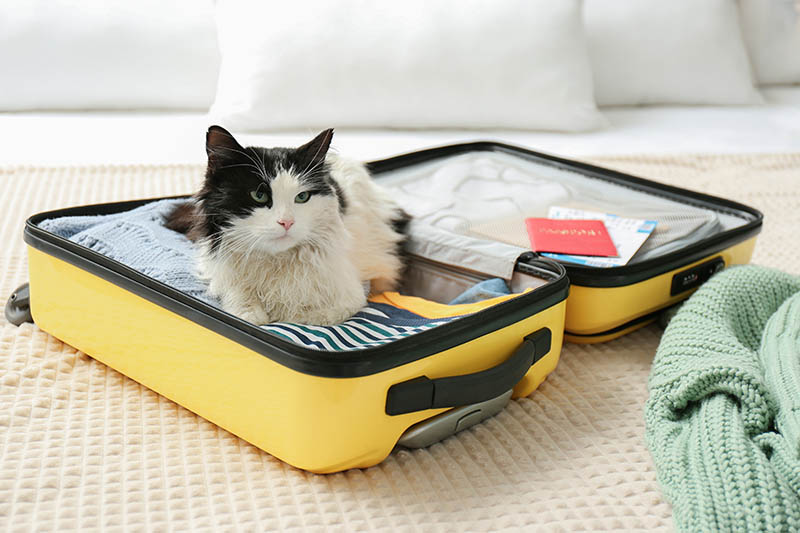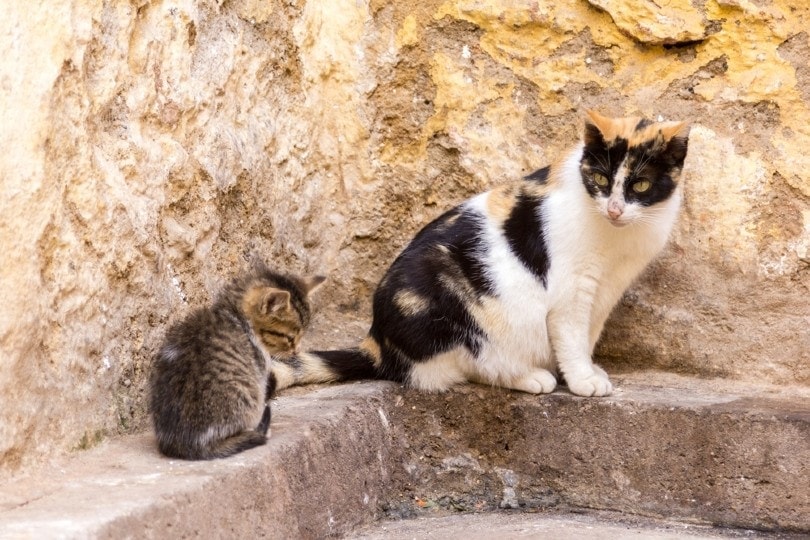When Do Kittens Start Eating Food and Drinking Water? Vet Approved Advice
Updated on
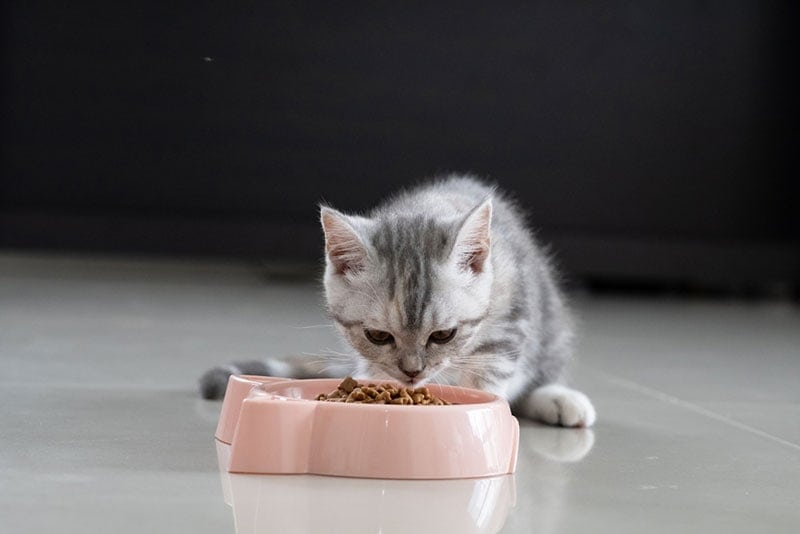
Click to Skip Ahead
Kittens are adorable little creatures that make us want to do nothing more than hang out on the couch for long snuggling sessions. For the first few weeks of a kitten’s life, though, their mother should be their main caretaker. There will come a time when kittens are ready for their owners to take over a few duties, like feeding and watering. So, when do kittens start eating food and drinking water on their own? The short answer is kittens start eating food when they’re ready to wean from their mother’s milk, typically starting at about 4 weeks of age. That said, there are no hard-and-fast rules. Here is what you should know.
How Old Are Kittens When They Start to Eat Solid Food?
Kittens spend their first few weeks of life consuming nothing but their mother’s milk or if they are orphaned or abandoned, kitten replacement formula. At about the age of 4 weeks, kittens will start nibbling on solid foods and spend less time nursing.
As time goes on, they will start eating more solid food and consuming less of their mother’s milk until they strictly eat solid (wet or dry) food and no longer nurse at all. The process can take as little as a week or as long as several weeks, depending on the kitten in question and the mother’s parenting behaviors. Some mothers spend more time weaning, while others seem to be eager to get the job done.
How Old Are Kittens When They Start to Drink Water?
Kittens do not need to drink water when they are nursing from their mother because her milk contains enough hydration to keep the kitties healthy until they are ready to be weaned. Therefore, they will start to drink water when they start to eat solid food at about 4 weeks old. There is no need to provide kittens with water until they start looking for food with their mother’s guidance.
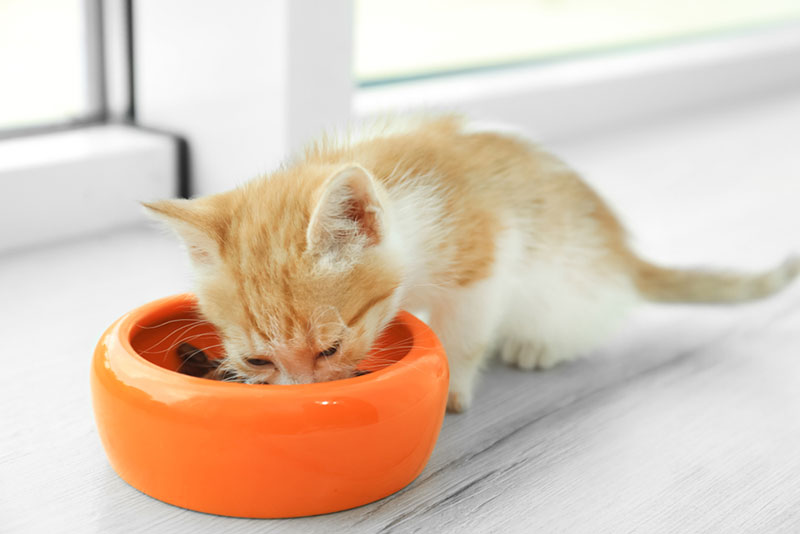
How Long Does It Take to Fully Wean Kittens?
Weaning begins at about 4 weeks of age and ends between 8 and 10 weeks of age. Therefore, it takes about 4 to 6 weeks for a kitten to become fully weaned from their mother’s milk. During this time, a kitten will eat more food and drink more water while reducing the time that they spend nursing from their mother. At the beginning of the weaning process, a kitten might eat 10% solid food and nurse the rest of the time. In the end, the percentage rates would be reversed. The same goes for drinking water.
How Can I Support the Weaning Process?
Your mother cat should take care of the weaning process herself, but there are a few things that you can do to facilitate the process. First, make food and water available for the mother and all her kittens. It’s a good idea to put food and water in several different dishes while positioning them near each other, so everyone can learn to eat and drink together without feeling like they must compete for resources.
Once the mother teaches her kittens where the food and water are and they start eating on their own, you can separate the mother and kittens from each other during meal time so mom can get a bit of peace and quiet and the kitties can learn better how to fend for themselves. Just placing their dishes in different areas of the same room so that they can still see and hear each other. Encourage the kittens to follow you over to their food.
What About Weaning an Orphaned Kitten or Litter?
Orphaned kittens must consume a commercial formula that is designed to mimic a mother cat’s milk, and they will still be ready to be weaned by about 4 weeks of age. The problem is that orphaned kittens do not have a mother to teach them how to seek out food and water as they become weaned. So, if you are caring for orphaned kittens, you will need to be the teacher.
This means that between bottle feedings, you’ll need to move the kittens to an area where food and water are available. Encourage the consumption of food and water by gently directing them toward it, it may be necessary to pop a little bit on their lips for them to lick off at first. To make things easier, put formula in their food bowls and mix a bit of wet food in for the first week or so. Then, start adding dry food as you reduce the amount of formula that you’re offering. Eventually, the kittens will be eating exclusively dry (or wet) food.
The more access that kittens have to food and water, the easier it will be for them to wean off the formula. It is also a good idea to work with a veterinarian, veterinary nurse or rehoming shelter to get experienced guidance and advice throughout the process. Ultimately, an orphaned kitten might take longer than a housecat’s kitten to become weaned.
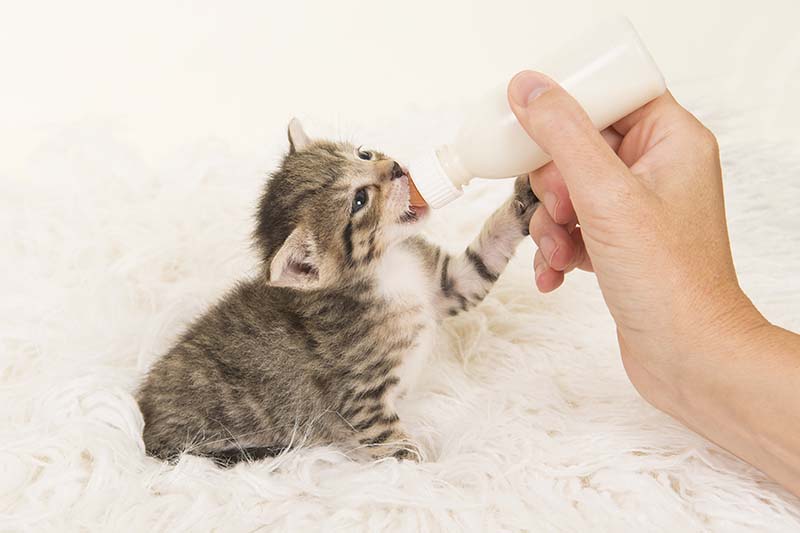
A Quick Recap
Kittens get weaned between the ages of 8 and 10 weeks, but the process starts around the age of about 4 weeks. It is best to let the mother cat take care of the weaning as much as possible, while you make sure there is plenty of food and water to go around. If you are caring for an orphaned kitten or litter or you have any doubts about your housecat’s kittens being weaned, contact your veterinarian.
Featured Image Credit: Patcharida, Shutterstock


